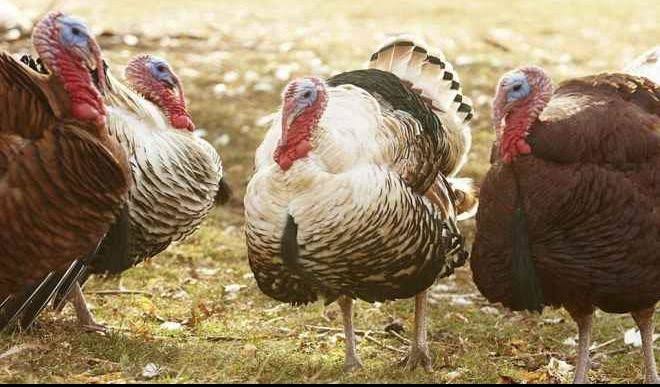🔥E- book offer of the day: 👉👉 Poultry farming business report Volume 5
10 fundamentals for turkey production success
Below are ten fundamentals for successful turkey production, along with detailed explanations for each:
 Learn More
Learn More
1. Quality Breeds Selection: Start by selecting high-quality turkey breeds known for traits such as fast growth, feed efficiency, meat quality, and disease resistance. Common breeds include Broad Breasted Whites and Bronzes, chosen based on your market preferences and production goals.
2. Optimal Housing and Environment: Design turkey housing facilities that provide sufficient space, proper ventilation, temperature control, and litter management. A comfortable environment minimizes stress, promotes healthy growth, and reduces the risk of respiratory issues.
3. Nutrition Management: Develop a balanced and nutritionally complete diet specifically formulated for turkeys at different life stages. Ensure adequate protein, energy, vitamins, minerals, and amino acids to support rapid growth, muscle development, and overall health.
Invest in this knowledge-packed ebook promptly. 👉 20 questions to ask your poultry farm manager everyday
4. Water Quality and Availability: Ensure turkeys have constant access to clean and fresh water. Water quality is crucial for digestion, nutrient absorption, and thermoregulation. Regularly monitor water sources and sanitation practices to maintain optimal water quality.
READ ALSO Factors That Affect Layer Egg Size
5. Disease Prevention and Biosecurity: Implement strict biosecurity protocols to prevent the introduction and spread of diseases within the turkey flock. Vaccinate turkeys as recommended, practice proper sanitation, control pests, and limit farm visitors to minimize disease risks.

6. Breeding and Hatchery Management: If breeding turkeys on-site, manage breeding programs carefully to maintain genetic diversity and reproductive success. Ensure proper incubation conditions in the hatchery to produce strong and healthy poults (baby turkeys).
7. Health Monitoring and Veterinary Care: Monitor turkey health regularly, conduct health checks, and promptly address any signs of illness or injury. Work closely with veterinarians to develop preventive health plans, administer treatments when necessary, and manage disease outbreaks effectively.
READ ALSO Handling and Main Challenges of Rearing Pullets
8. Feeding Management: Monitor feed consumption, adjust feeding programs as needed, and ensure a consistent supply of high-quality feed. Proper feeding management supports optimal growth, efficient feed conversion, and desired meat quality in turkeys.
Purchase this compelling ebook instantly. 👉👉21 most important poultry diseases with prevention, control & treatment
9. Waste Management: Develop effective waste management systems to handle turkey manure and waste products. Proper waste management reduces odors, minimizes environmental impact, and helps prevent disease transmission.
ATTENTION: Click “HERE” to join our WhatsApp group and receive More updates directly on your WhatsApp!
10. Record Keeping and Performance Monitoring: Maintain detailed records of turkey performance metrics, including growth rates, feed conversion ratios, mortality rates, and health status. Analyze these data regularly to identify trends, make informed management decisions, and optimize production outcomes.
By focusing on these fundamentals, turkey producers can optimize production efficiency, ensure turkey health and welfare, and achieve success in the turkey farming industry.
🧩CREATED BY DR JOSEPH DEJI-FOLUTILE















